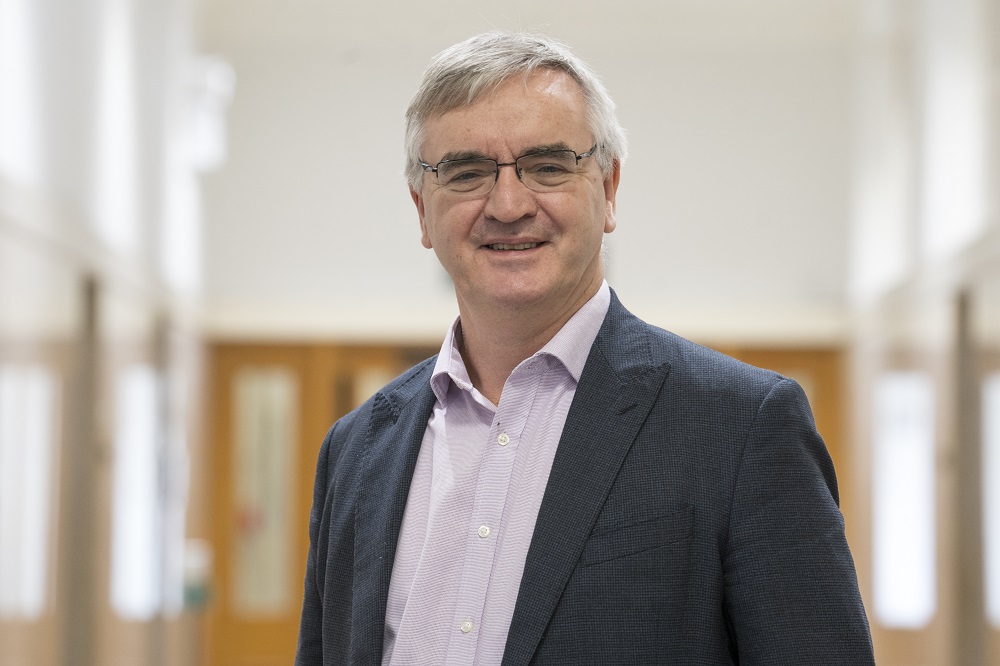
November 21, 2024, by Rob Ounsworth
Our leading role in delivering UK’s strategic vision
The autumn budget set aside a record £20.4bn for R&D, with core research funding increasing to £6.1bn, another record. More than 4,700 newly funded post-graduate places in UK universities have been created to inspire a generation of engineers and scientists, and £40m earmarked to support the spin-out from universities of new ideas.
While the HE sector faces serious financial challenges and it would be unfair and unrealistic to not acknowledge and address the stress and uncertainty this brings, we should welcome the government’s commitment to science and innovation.
Universities are engines of innovation and will play a leading role in the government’s new R&D Missions Programme, which focuses on national challenges such as advancing healthcare and transitioning to cleaner energy. These strategic priorities align with our own RKE strategy and research strengths. Innovation drives growth and we have the ambition and capabilities to make a significant contribution to securing future UK prosperity.
£25m award from UKRI for doctoral training
UKRI’s £25m award for doctoral training at Nottingham demonstrates how our signature research strengths and ability to deliver a pipeline of innovators will support industry in addressing national challenges.
The Biotechnology and Biological Sciences Research Council (BBSRC) is allocating £14m to support PhD training in biological sciences for five intakes of students from 2025 from the University of Nottingham and Nottingham Trent University. This will be the fourth successful grant to support the programme, and the second time the two universities have delivered the programme together. The Nottingham Doctoral Landscape Awards (DLA) Partnership will focus on three themes: Sustainable Agriculture and Food, Bioscience for Human Health and Biotechnology for Sustainable Growth.
The Engineering and Physical Sciences Research Council (EPSRC) is meanwhile providing £11m for the University of Nottingham to train three cohorts of doctoral students. This next generation of innovators will enhance the UK’s capabilities in key strategic areas that align with our own strengths, such the translation of zero carbon technologies. The DLA will take in multi-disciplinary research across the faculties of Science, Engineering, and Medicine and Health Sciences, including quantum sensing, advanced manufacturing, hydrogen energy, power electronics, AI, healthcare devices, battery technology, and engineering biology.
Professor Zoe Wilson is Director of the Nottingham biological sciences DLA, and Professor Chris Tuck and Professor Phil Williams co-lead our engineering and physical science DLA. Congratulations to all involved in securing this funding.
Internal funding and new programmes for research
I am also delighted to share news that a proportion of the university’s recent award of £69.5m in quality-related research funding has been earmarked for immediate internal support for collaborative, interdisciplinary and research growth projects.
This will support emerging areas of strength and enhance our ability to build partnerships and attract further external funding.
We are allocating £525,000 for immediate and upcoming opportunities:
International Research Collaboration Fund
The International Research Collaboration Fund (IRCF) has been relaunched and is open for applications. It supports our researchers to undertake excellent research with new or existing collaborators outside the UK.
The next two application review dates are 20 November and 14 January 2025.
The IRCF has a strong record of facilitating international collaborations that go on to external funding successes. In the 2022/23 round, an IRCF award supporting the building of a USA/UoN/EU consortium was instrumental in Dr Kevin Webb of the Faculty of Engineering helping to land a $7.5m (£5.9m) grant from the US National Institutes of Health to establish a US national centre that will harness cutting-edge tissue-on-chip technology.
Find out more and how to apply
UoN Interdisciplinary Fund (UNICAS)
UNICAS is an internal funding scheme that brings together cross-disciplinary groups and provide pump-prime funding for exciting, novel research projects.
Since 2011, UNICAS has funded 123 cross-faculty, novel research pump-prime projects with a total internal investment of £950,000 contributing to external awards of more than £13.1m.
The funding uplift will also retrospectively support 2023/2024 UNICAS projects which were paused due to the university spending freeze, allowing them to restart in the new year.
Find out more: UNICAS – internal funding scheme
Flexible Research Growth Fund
The flexible research growth fund will provide support for research showcases and sandpit events to support idea generation and network building. We will also be exploring options for seed-corn funding and pump-priming support for external funding applications, some of which will be focused on research growth areas and emerging signature strengths. Details to follow in our next research update.
Funder Advisory Network
The new Funder Advisory Network is a dynamic virtual hub, designed to strengthen and streamline our engagement with key funders such as UKRI, Wellcome, Leverhulme, the National Academies and NIHR.
The heart of this innovative network will be the dedicated FAN Engage channel, a virtual space where members can share insights, strategise on funding approaches, and follow funder activities and opportunities.
Wellcome Discovery Awards
We have put together guidance for researchers planning to apply for this year’s Wellcome Discovery Awards.
The awards recognise established researchers across all disciplines who are looking to secure funding for projects seeking to deliver significant shifts in understanding related to human life, health and wellbeing.
Previous recipients of the prestigious awards include Professors Ian Sayers and Ian Hall of Biodiscovery Institute, for their in speeding up gene discoveries for lung conditions, and Professor Anna Greenwood of the Department of History, for the project Kicking the Habit: Historicising ‘Addictive’ Sport Sponsorship in Britain, 1965-2025, and Dr Dov Stokel of Biosciences, who is part of an international study to help find ways to tackle depression in disadvantaged young people in Africa.
UniCore go-live: information for researchers
UniCore goes live on Monday, 25 November. There may be teething issues and we can expect a backlog – as ever, thank you for your patience and understanding. Once up to speed, I am sure we’ll welcome a system that makes life easier for everyone running research projects. The R&I SharePoint site includes training and support to help navigate the transition, and resources for researchers are available on the UniCore training pages.
For assistance, visit nott.ac/unicore, where support requests will be addressed as quickly as possible. For immediate research-related concerns, please contact your local team for support.
Revolutionising research supervision
The Next Generation Research SuperVision Project (RSVP) is a £4.6m initiative designed to enhance and support the skills of research supervisors. Funded by the Research England Development Fund, it supports institutional-level innovative projects in research and KE.
Over the next four years, we will collaborate with universities and global businesses to transform supervision practices.
In January 2025, we will launch Signposts and Boundaries, sessions created to empower supervisors of all experience levels. Additionally, we will re-launch our monthly Supervisor Seminar Series and host an in-person session, Core Skills for Supervisory Relationships: Fostering Mutual Success.
Follow the Researcher Academy Supervisor Page to learn more about RSVP.
Exploring the role of AI
Finally, and on a personal note, I thoroughly enjoyed joining a workshop that delved into the application and impact of artificial intelligence across research and knowledge exchange. At Nottingham, we’re well-placed to make a real impact by focusing on trusted, interdisciplinary research. Our approach emphasises responsible data use and addresses the ethical challenges AI presents. Now is the time to build on these strengths and explore what AI can truly achieve.
With thanks and best wishes
Professor Tom Rodden
Pro-Vice-Chancellor for Research and Knowledge Exchange
No comments yet, fill out a comment to be the first


Leave a Reply